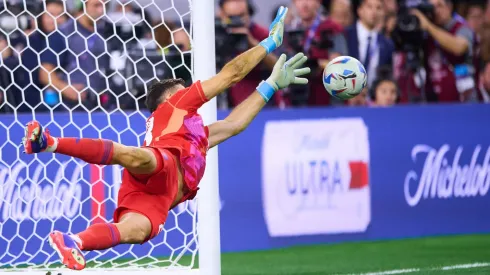For years, the Copa America has ignored extra time, instead heading straight to penalties if games in the quarterfinals or semifinals are tied after 90 minutes.
On one hand, it is exciting. Ecuador’s late equalizer against Argentina on Thursday provided great drama. Lionel Messi and his Argentina teammates had not conceded in their three group-stage games. Yet, Kevin Rodriguez made the game rife with parity with his stoppage-time header. At the same time, the game had a different feel. Avoiding the 30 minutes of play after the tied game took out what was likely to be drama.
Argentina advanced, which some will say would have happened in extra time anyway. That is by far a guarantee, though. Ecuador’s attempt to push for a game-tying goal for much of the second half yielded several great chances. A penalty miss from Enner Valencia should have tied the game. Then, Jordy Caicedo should have scored in the game’s dying minutes. The game was remarkably even in every meaningful statistic. It deserved 30 more minutes of that drama, not a penalty shootout where it comes down to goalkeepers.
Without extra time, the Copa America picks up another reason to feel amateurish. The pitch conditions, lack of atmosphere and ticket prices have made the Copa America pale in comparison to the Euros, for example. Jumping from action in regular time to penalties is a disjointed effort to provide more ‘action’ in the Copa America. In truth, it makes the game feel like a friendly, not a quarterfinals of an international competition.
For reference, friendly games often use penalties to decide a victor. Those games mean nothing, and the penalties are a way for fans to see some concluding excitement instead of the game fizzling out. Bringing that feeling to the Copa America, which wants to be on the same level as the European Championship, does no favors.

Copa America penalties take away the competitive side of the game
Certainly, there were storylines to be had. Emiliano Martinez making two saves after Lionel Messi missed the opening attempt of the penalty shootout gets people talking about the Copa America. From a sporting perspective, though, penalties come down to luck. Emiliano Martinez may be able to control that luck better than any goalkeeper in the world, but there is parity. In the long run, penalties do not often demonstrate the team that is on top.
There are consequences for not using extra time that the Copa America suffers from. For example, it is easier for a team to hold on for 90 minutes than it is for 120. Part of what made Slovevnia’s performance against Portugal impressive was that it held out Cristiano Ronaldo, Bruno Fernandes and the rest of a potent Portugal side was that it did so for two hours of game time. Ecuador had one shot on target before Kevin Rodriguez scored. Yet, the game came down to the unpredictable nature of the penalties.
There is already discourse about penalties being the best way to decide a tie in soccer. In fairness, there is no other alternative to penalties that do not risk injuries to exhausted players. Yet, bringing them about earlier than necessary is not a great look for Copa America.
PHOTOS: IMAGO















